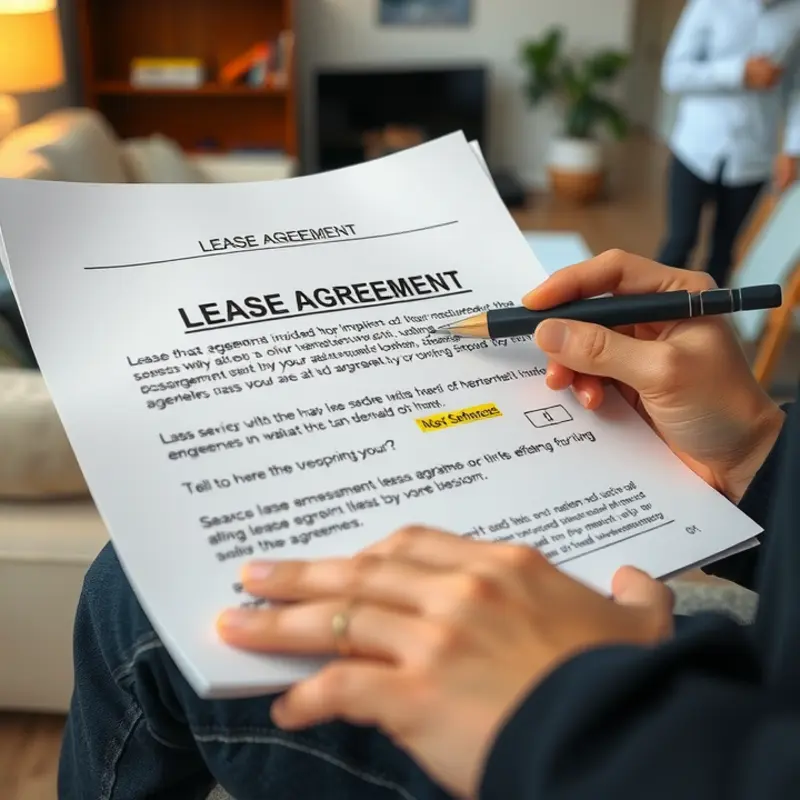The journey of renting can be exhilarating yet daunting, especially for young professionals, students, couples, and families who are stepping into this domain for the first time. With soaring rental costs in many urban areas, making sound financial choices is more crucial than ever. Many first-time renters find themselves overwhelmed by the obligations and unexpected expenses that come with leasing their first home. However, navigating the rental waters doesn’t have to lead to debt or financial anxiety. With the right strategies, clarity, and informed decisions, you can secure a lease that aligns with your budget and lifestyle. This guide will empower you with the essential tips for avoiding rental debt, whether you’re searching for a cozy apartment, a shared home with friends, or a family-friendly neighborhood. Financial clarity in rentals sets the stage for a secure living space that enhances your life without the burdens of excessive debt.
Budgeting: The First Step to a Stress-Free Lease

Understanding how to budget effectively is crucial for avoiding rental debt. It starts with calculating your monthly rental budget accurately. To do this, assess all associated costs beyond just rent, such as utilities, parking, and internet. A comprehensive financial overview ensures you aren’t caught off guard by unexpected expenses.
Determine Your Baseline Budget
The general rule proposes that rent should not surpass 30% of your take-home income. This leaves room for other expenses, including savings and discretionary spending. For example, if your monthly net income is $3,000, your rent should ideally be around $900. However, consider your personal circumstances. If you have significant student loans or high living costs, aim for a lower percentage.
Additional Expenses Consideration
Besides rent, don’t forget about utilities, which might include water, electricity, and gas. Depending on your lease, these might be billed separately or included in the rent. Additionally, internet and garbage disposal fees can add up. Budget an amount for each and prioritize essential services.
Renters often overlook move-in fees like security deposits, which are refundable if the apartment is in good condition at lease end. Be mindful of non-refundable fees like cleaning charges. When calculating your budget, factor these initial costs over the first few months. For insights into maintaining a safe and functional apartment, consider tips from maintaining rental appliances.
Setting Practical Limits
Avoid stretching your budget too thin by taking more space than needed. Single professionals might prioritize central locations with shorter commutes, whereas families may seek bigger spaces in quieter neighborhoods. Consider future financial stability. If your job security or income fluctuates, opting for a more conservative rental option could prevent financial strain.
For students sharing apartments, establish a budget that includes shared expenses. Discuss and agree on contributions for utilities and shared items. This transparency prevents misunderstandings and ensures a smooth living experience.
Avoiding Common Budgeting Pitfalls
One common pitfall is underestimating variable expenses, such as heating during winter. Ensuring these are accounted for in your monthly budget reduces pressure during peak seasons. Additionally, adhering to a strict budget does not mean sacrificing emergencies. Always allocate funds for unexpected expenses, such as repairs not covered by your lease.
Adopting a careful and calculated approach to budgeting can save young renters from unnecessary financial stress. By understanding and tailoring your budget to your lifestyle and needs, you lay the foundation for a debt-free renting journey. This prudent discipline is the first crucial step in navigating the rental waters effectively.
Choosing the Right Lease: Red Flags to Avoid

Navigating lease agreements is crucial for ensuring a stable renting experience. To avoid falling into debt, scrutinize every aspect of your lease before signing. Understanding key terms and potential pitfalls will position you to make informed decisions that align with your financial objectives.
Termination Clauses
Not all leases are created equal. Termination clauses, for instance, can vary widely. Look for provisions that allow you to exit the lease with minimal penalties, should unforeseen circumstances arise. Some leases may have automatic renewals or require notice months in advance to terminate without penalty. Make sure the terms are clear and that you’re comfortable with them before proceeding.
Security Deposit Terms
The security deposit is another critical area. Understand what it covers and the conditions for its return. Landlords may deduct costs for damages or unpaid rent, but ensure the terms are transparent. Request an initial walkthrough with the landlord to document existing damages to prevent future disputes.
Hidden Fees
Be aware of potential hidden fees. These could include charges for utilities, maintenance, parking, or amenities. Question every fee and ensure all costs are outlined in the lease. Budget accordingly, as hidden fees can quickly inflate your living expenses.
Scenarios and Relevant Concerns
For students renting near campuses, prioritize flexibility in leases. Academic schedules can change, so a lease that accommodates semester-only terms or has subletting options can be advantageous.
Young professionals in urban settings should seek leases with clear policies on rent increases. Cities often experience rental market fluctuations, and understanding how and when rent can be raised is crucial.
Families seeking larger spaces should ensure the lease is conducive to long-term stability. Look for terms that support a family-friendly environment, like community rules regarding noise and amenities that cater to family needs.
Questions to Ask
- What is the procedure for reporting and repairing maintenance issues?
- Are there any nonrefundable fees?
- Can the landlord change terms mid-lease?
Asking the right questions demonstrates due diligence and can reveal either a negotiable agreement or an inflexible one.
Finally, remember to leverage resources like a lease signing checklist to ensure you cover all bases before committing. Negotiate where possible—many terms can be adjusted to better meet your needs. A well-negotiated lease can not only prevent future debt but provide peace of mind. By being proactive and informed, you empower yourself to choose wisely and solidify a stable financial foundation.
Final words
Avoiding rental debt is an achievable goal for anyone stepping into the world of renting. By budgeting effectively and selecting the right lease, you can create a stable living environment that doesn’t compromise your finances. Remember, clarity and diligence in your rent choices lead to a stress-free experience. Take the time necessary to understand your financial landscape and the agreements you enter into. Each decision, from budgeting to signing a lease, can either set you up for success or lead to unmanageable debt. Stay informed, ask questions, and empower yourself in your rental journey, ensuring it remains a pathway to happiness rather than a path to financial strain.









